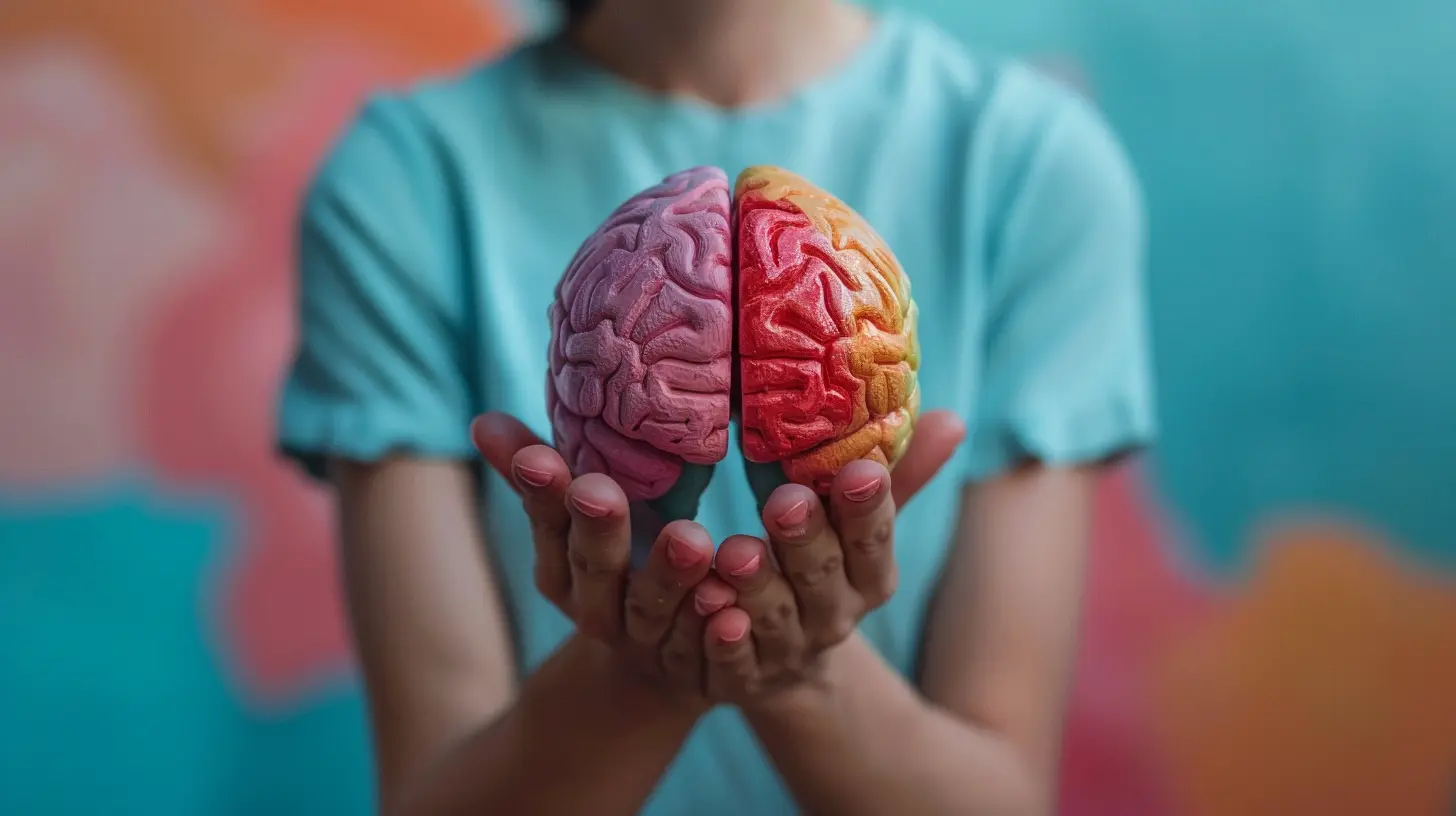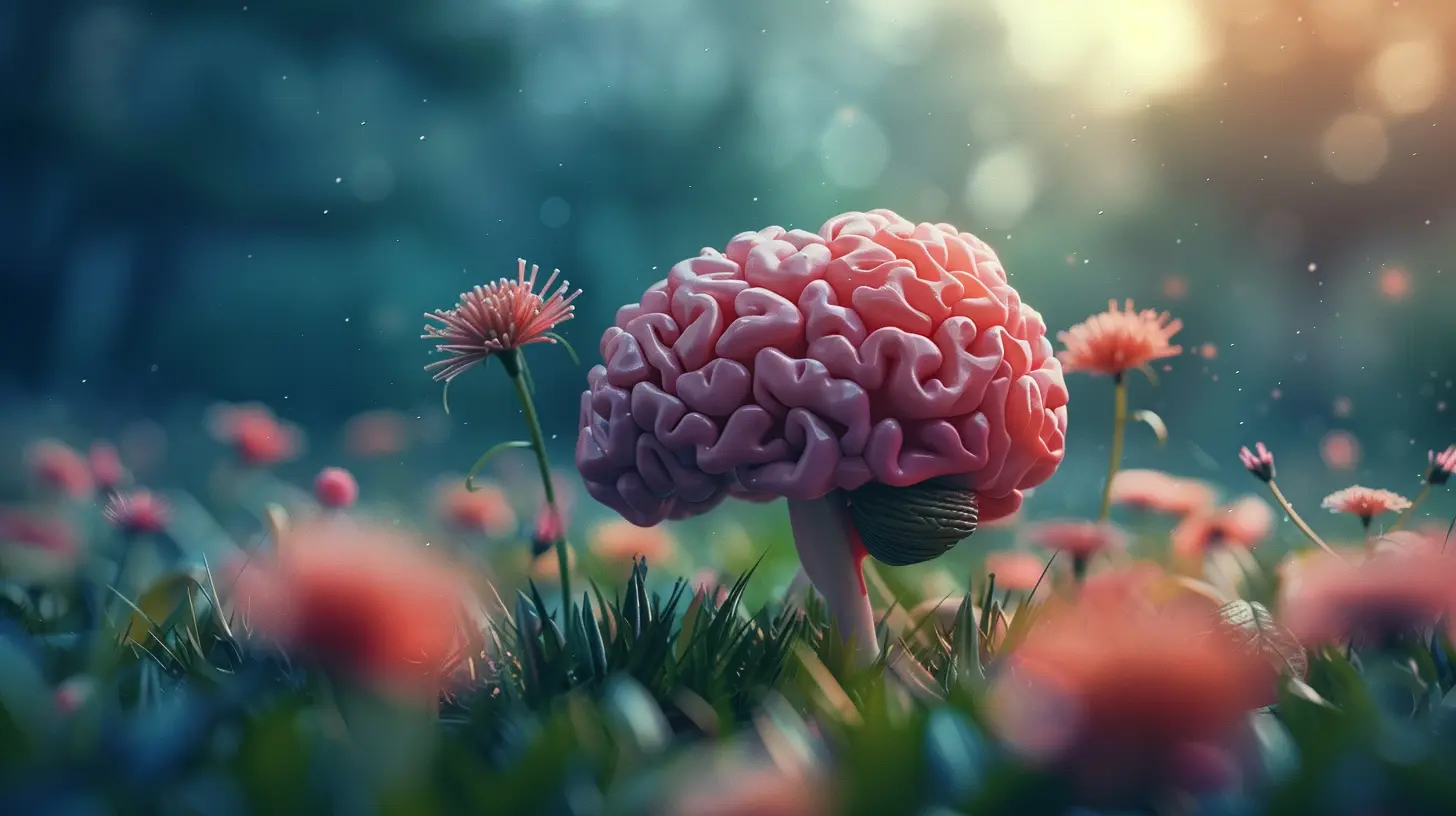Can You Train Your Brain to Be Happier?
30 June 2025
Happiness—it's that elusive emotion we all chase, right? We spend years of our lives trying to figure out how to be happier. We read self-help books, watch motivational videos, and yet, sometimes we still feel like we’re just... not quite there.
But what if I told you that happiness isn't as elusive as it seems? What if you could actually train your brain to be happier? Just like you can train your muscles at the gym, you can strengthen your brain’s ability to experience joy and contentment.
Sounds too good to be true? Well, stick with me, and let's dive into the science behind it. Spoiler alert: it’s totally possible.

The Science Behind Happiness
Before we talk about how to train your brain, let's start with understanding what happiness is from a psychological and biological perspective.
The Brain Chemicals That Make You Happy
There are certain chemicals in your brain that play a huge role in how you feel. These chemicals are often referred to as "neurotransmitters," and they are essentially the brain’s way of communicating with itself. Some of the key players in the happiness game include:- Dopamine: This is often called the "reward chemical." It’s released when you achieve something or experience pleasure.
- Serotonin: This neurotransmitter helps regulate mood, sleep, and appetite. Low levels of serotonin are often linked to feelings of depression.
- Oxytocin: Often referred to as the "love hormone," oxytocin is released during social bonding activities, like hugging or holding hands.
- Endorphins: These are your body’s natural painkillers. They’re released during physical activity, reducing pain and increasing feelings of euphoria.
Now, here's the thing—your brain is wired to seek pleasure and avoid pain. But this doesn’t mean you're stuck with a happiness set point. With the right mental exercises and habits, you can actually train these neurotransmitters to fire more frequently, leading to a more consistently happy state.
Neuroplasticity: Your Brain Can Change
The idea that you can train your brain to be happier is rooted in a concept called neuroplasticity. This refers to the brain’s ability to adapt and change throughout your life.For years, scientists thought that once the brain reached adulthood, it was pretty much unchangeable. But recent research has flipped that notion on its head. Your brain is constantly rewiring itself based on your experiences, thoughts, and behaviors. So, the more you engage in activities that promote happiness, the more your brain will adapt to feeling happier.
It's kind of like walking through a grassy field. The first time you walk through, the grass stays tall and resilient. But the more you walk that same path, the more the grass gets trampled down, creating a clear, easy-to-follow trail. In the same way, the more you engage in positive thoughts and habits, the easier it becomes for your brain to default to happiness.

Can You Really Train Your Brain to Be Happier?
The short answer is: Yes, absolutely. But—there’s always a "but," right?—it does take effort. It’s not like flipping a switch. You can’t expect to wake up one day and magically feel happier just because you read this article. It’s more like building a muscle. The more you work at it, the stronger your brain’s "happiness pathways" will become.1. Practice Gratitude Regularly
I know, I know, you’ve probably heard this one a zillion times. But there’s a reason why everyone talks about gratitude—it works.When you consciously focus on the things you're grateful for, it forces your brain to pay attention to the positive aspects of your life. Over time, this shifts your brain's focus from what's lacking to what’s abundant.
How to Do It:
Set aside just five minutes each day to write down three things you're grateful for. It doesn’t have to be anything grand—it could be as simple as your morning coffee or the way the sun felt on your skin. The key is consistency. Over time, this practice will help rewire your brain to focus more on the good stuff.2. Meditate to Rewire Your Brain
Meditation is another powerful tool for training your brain to be happier. Studies have shown that regular meditation can increase gray matter in areas of the brain associated with emotional regulation and happiness.When you meditate, you teach your brain to stay in the present moment, which can reduce anxiety and stress—two major happiness killers.
How to Do It:
You don’t need to spend hours meditating to see benefits. Start with just 5-10 minutes a day. Focus on your breath, and when your mind wanders (which it will!), gently bring your attention back to your breath. Apps like Headspace or Calm can help guide you.3. Engage in Random Acts of Kindness
Doing something nice for someone else can actually make you feel happier. This is because acts of kindness trigger the release of dopamine, giving you that warm, fuzzy feeling inside.Plus, when you're kind to others, it helps create a sense of connection and community, which is a key component of happiness.
How to Do It:
Look for small ways to be kind to people in your daily life. Smile at someone, hold the door open, or pay for the coffee of the person behind you in line. These little actions can make a big difference in how you feel.4. Exercise Regularly
I know you’ve heard this one before, too, but it’s worth repeating. Exercise is one of the most effective ways to boost happiness.When you get your body moving, you release endorphins—those natural painkillers we talked about earlier. Plus, regular exercise has been shown to reduce symptoms of depression and anxiety.
How to Do It:
You don’t need to become a marathon runner to reap the benefits of exercise. Even just 20-30 minutes of moderate activity, like walking, a few times a week can make a big difference.5. Reframe Negative Thoughts
Our brains have a negativity bias, meaning we're naturally more attuned to negative experiences or thoughts. This made sense for our ancestors, who needed to stay alert for threats. But in the modern world, this bias can make us feel unnecessarily stressed or unhappy.Cognitive reframing is a technique used in cognitive-behavioral therapy (CBT) that can help you shift your perspective on negative situations.
How to Do It:
When you notice a negative thought, ask yourself if it’s really true or if you're just interpreting the situation in the worst possible way. Then, try to come up with a more balanced or positive interpretation. For example, instead of thinking, "I’m terrible at this job," try, "I’m still learning, and improvement takes time."6. Surround Yourself with Positive People
You know that saying, "You are the average of the five people you spend the most time with"? While it might be a bit of an exaggeration, there’s truth to it. The people you surround yourself with have a huge impact on your emotional state.If you’re constantly around negative, critical, or pessimistic people, it can be hard to stay positive. On the other hand, spending time with supportive, optimistic people can boost your mood and help you stay on the happiness track.
How to Do It:
Take note of how you feel after spending time with different people. If certain relationships consistently leave you feeling drained or down, it might be time to set boundaries. Prioritize time with those who uplift and inspire you.7. Laugh More Often
This one’s simple: Laughter really is the best medicine. When you laugh, your brain releases a cocktail of feel-good chemicals like dopamine, endorphins, and oxytocin.Plus, laughter helps reduce stress and anxiety, which are major happiness blockers.
How to Do It:
Seek out opportunities to laugh. Watch a funny movie, hang out with that friend who always cracks you up, or follow a hilarious meme account on social media. Whatever gets you giggling, do more of that.
Final Thoughts: Happiness Is a Journey, Not a Destination
Can you train your brain to be happier? Yes, without a doubt. But it’s important to remember that happiness is not a permanent state. Life is full of ups and downs, and it’s normal to experience a range of emotions. The goal isn’t to be happy all the time, but to create a mental environment where happiness can flourish more easily.The brain is a powerful tool, and with a bit of effort, you can rewire it to focus more on the positives. So, why not give it a shot? Start small—practice gratitude, meditate, be kind, and laugh. Over time, you’ll start to notice the difference.
After all, happiness isn’t something you have to chase—it’s something you can cultivate.
all images in this post were generated using AI tools
Category:
Psychology Of HappinessAuthor:

Alexandra Butler
Discussion
rate this article
2 comments
Soryn Evans
Sure! Here’s a playful comment for the blog article: Absolutely! Just tell your brain it’s getting a raise in happiness with every happy thought. But beware: if it starts asking for a corner office and a corner piece of cake, you might have created a happiness monster! Let’s just settle for a smiley face sticker instead!
September 26, 2025 at 4:10 PM

Alexandra Butler
Love the playful take! Training our brains for happiness can definitely lead to unexpected requests—let’s keep it simple and stick with smiles! 😊
Riff Weber
This article offers valuable insights into happiness; it's inspiring to see how mindset truly shapes our experiences.
July 5, 2025 at 2:33 PM

Alexandra Butler
Thank you! I'm glad you found the insights inspiring. Mindset plays a crucial role in our happiness journey!


